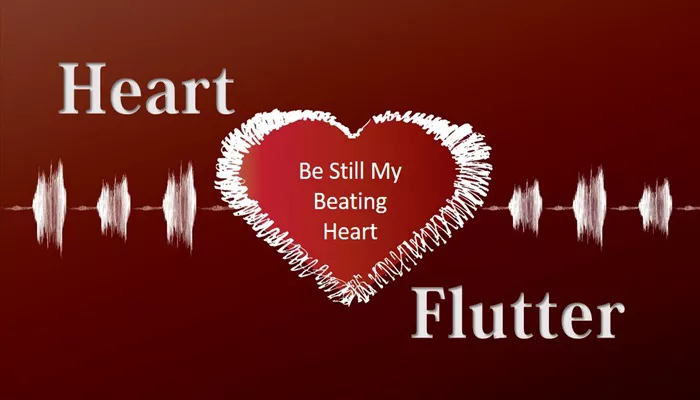Heart flutters, often described as a sensation of rapid, irregular, or skipped heartbeats, are medically known as palpitations. They may feel like your heart is pounding, racing, or fluttering inside your chest, throat, or neck. Many people experience these sensations occasionally and may worry about their significance.
Palpitations can vary in intensity, duration, and frequency. They sometimes occur at rest or during activity and can be accompanied by other symptoms such as dizziness, shortness of breath, chest pain, or fainting. Understanding the root causes of heart flutters and their potential dangers is crucial for proper management and peace of mind.
The Physiology Behind Heart Flutters
How the Heart’s Electrical System Works
The heart relies on a carefully coordinated electrical conduction system to maintain a regular rhythm. The sinoatrial (SA) node, located in the right atrium, acts as the natural pacemaker, sending electrical impulses that trigger heart muscle contractions. These impulses travel through the atria, the atrioventricular (AV) node, and then the ventricles, resulting in a steady heartbeat.
When this electrical system is disrupted, it can cause irregular or extra beats, which are often perceived as heart flutters.
Types of Irregular Heart Rhythms That Cause Flutters
Common arrhythmias related to heart flutters include:
Premature atrial contractions (PACs): Early heartbeats originating in the atria.
Premature ventricular contractions (PVCs): Early beats originating in the ventricles.
Atrial fibrillation (AFib): Rapid, irregular atrial activity causing a quivering sensation.
Supraventricular tachycardia (SVT): Rapid heart rate originating above the ventricles.
Common Causes of Heart Flutters
Physiological and Lifestyle Factors
Many heart flutters are benign and caused by temporary triggers. These include:
Stress and Anxiety: Emotional stress can activate the sympathetic nervous system, increasing heart rate and causing palpitations.
Caffeine and Stimulants: Excessive consumption of caffeine, nicotine, or energy drinks can provoke heart flutters.
Exercise: Intense physical activity can temporarily increase heart rate and cause sensations of fluttering.
Hormonal Changes: Fluctuations during pregnancy, menstruation, or menopause may contribute to palpitations.
Medications and Supplements: Some drugs, such as decongestants, asthma inhalers, and thyroid medications, can induce heart flutters.
Medical Conditions Causing Heart Flutters
Heart flutters can also be signs of underlying health issues, including:
Arrhythmias: Abnormal electrical activity in the heart can lead to sustained or frequent palpitations.
Structural Heart Disease: Conditions like cardiomyopathy, valve disease, or prior heart attacks can disrupt normal rhythm.
Thyroid Disorders: Hyperthyroidism increases metabolic rate and heart excitability.
Electrolyte Imbalances: Low potassium, magnesium, or calcium can affect heart muscle function.
Anemia: Reduced oxygen-carrying capacity forces the heart to beat faster.
Fever and Infection: Increased heart rate during illness may cause palpitations.
When Are Heart Flutters Dangerous?
Identifying Warning Signs
While many heart flutters are harmless, some indicate potentially serious heart problems. Seek medical attention if palpitations are accompanied by:
- Chest pain or pressure
- Severe shortness of breath
- Dizziness or fainting
- Rapid or irregular heartbeat lasting several minutes
- Swelling in the legs or sudden weight gain
These symptoms can indicate dangerous arrhythmias, heart failure, or ischemic heart disease requiring urgent evaluation.
Risk Factors Increasing Danger
Individuals with these risk factors should be especially vigilant:
- History of heart disease or previous heart attack
- Known arrhythmias or palpitations lasting longer than a few seconds
- Family history of sudden cardiac death
- Underlying chronic conditions such as hypertension or diabetes
Diagnosis of Heart Flutters
Medical History and Physical Examination
A thorough history helps determine the pattern, triggers, and associated symptoms of palpitations. The doctor will assess pulse regularity, blood pressure, and listen for abnormal heart sounds.
Electrocardiogram (ECG)
An ECG records the heart’s electrical activity and is essential to detect arrhythmias during symptoms or at rest.
Holter Monitor and Event Recorders
For intermittent palpitations, continuous ECG monitoring over 24-48 hours or longer helps capture transient episodes.
Additional Tests
Depending on findings, further tests may include:
- Echocardiogram to assess heart structure and function
- Blood tests to check for electrolyte abnormalities and thyroid function
- Stress testing to evaluate exercise-induced arrhythmias
- Electrophysiology study for detailed electrical mapping
Treatment of Heart Flutters
Lifestyle Modifications
For benign palpitations triggered by lifestyle factors, treatment focuses on:
- Reducing caffeine, alcohol, and nicotine intake
- Managing stress through relaxation techniques or counseling
- Ensuring adequate hydration and balanced nutrition
- Avoiding stimulant medications unless medically necessary
Medications
When arrhythmias cause symptoms or risk, medication may be prescribed, such as:
- Beta-blockers: Slow heart rate and reduce palpitations
- Calcium channel blockers: Control heart rhythm
- Antiarrhythmic drugs: For more complex rhythm disorders
Procedures and Interventions
In certain cases, invasive treatments are necessary:
Catheter Ablation: Targeted destruction of abnormal electrical pathways to stop arrhythmias
Pacing or Implantable Cardioverter Defibrillators (ICDs): Devices implanted to regulate or correct dangerous rhythms
When to See a Cardiologist
Consult a cardiologist if you experience frequent, severe, or prolonged heart flutters, or if they occur with other concerning symptoms. Early specialist evaluation ensures accurate diagnosis, appropriate treatment, and reduces risk of complications.
Conclusion
Heart flutters are common sensations caused by a variety of triggers ranging from harmless lifestyle factors to serious heart diseases. Understanding their causes, recognizing dangerous signs, and seeking timely medical care are essential for heart health. If you experience troubling palpitations, professional evaluation by a cardiovascular specialist will provide clarity and guide effective management.
Related topics:


